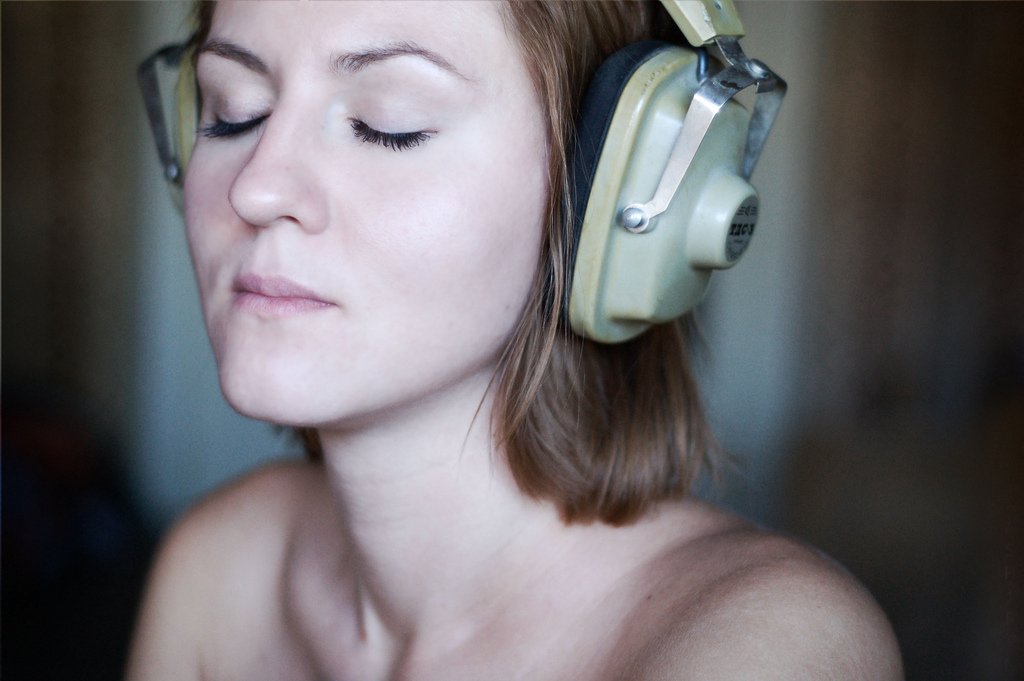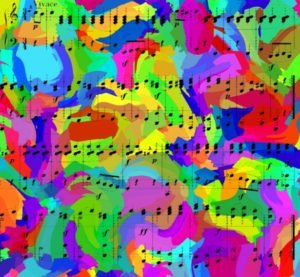
Music for wellbeing in depression
Hello Dear Reader
Since being on maternity leave I’ve had the opportunity to refresh my thoughts on the purpose of this blog. As a result, we are going to try something a bit different. I hope you like it.
Since I began writing in 2009 I’ve used a simple formula of presenting summaries from recent papers in the music psychology literature. This has worked well. However, I have received comments about the role of music in wellbeing where people want more than just scientific papers, they want insights – they want to know how music might help them.
I am not a music care professional or therapist so I am not in a position to offer this knowledge, but there are people who are happy to share their stories of musical wellness to provide inspiration and hope. The least I can do is offer these individuals a channel of communication to those who may benefit from their stories.
Going forward I will still provide my typical blogs on the scientific literature, but with the addition of real life stories of music and wellbeing.

Here is an account, written by David, of finding wellness through music whilst living with severe depression. At the end of the story I will provide links to relevant literature and contact details for anyone affected by the issues in this story who would like to reach out for professional support.
David’s story
A song was there
One day, out of the blue, a song was there.
It started with a guitar line and a melody and before I knew it there were lyrics. A complete song.
It ran through my mind for days. I could hear it. Eventually I knew I had to write it.
The problem was that I didn’t read music, had never written a song before and could barely strum a guitar. Nevertheless, I had to write this song.
The daughter of a friend of mine was sick in hospital. It didn’t look great. I wanted to encourage the family but didn’t know how. Then out of nowhere there was a song for them.
I wasn’t in great shape myself. I had recently started treatment for severe and debilitating depression. The medication had given my mood a lift, but initially with a manic unpredictability that saw me throw myself at a dozen creative outlets at once. I started drawing comics as a form of art therapy, commenced writing a blog, commencing a novel and now I was writing music.
I had always loved music. As a teen and through my young adult years I had music playing whenever and wherever I could. I was given a guitar as a gift in my teens, but had never mastered it, or even had lessons. I strummed in my bedroom on and off for a year or two and finally the guitar was ignored. I ended up lending it to my father for the better part of two decades.
So while a great admirer of music, it was always as a listener only.
When that first song arrived in my mind, I had retrieved that old guitar. My daughter had started playing bass guitar and having someone play basic chords as she practiced was meant to help, although my contribution was perhaps more an example of how not to play. But I tried.
About this time a friend also commented that he’d always wanted to do something in music but didn’t know how to play anything. My reply was “Me either. Let’s start a band…”
The energy that had arrived with the lifting of my depression had brought with it an absolute fearlessness. Within a few weeks of the suggestion to start a band, I handed him a cd with 7 completed songs. Then a week later another copy with 9 songs instead.
It’s hard to explain. The songs were just there. Somehow I knew what they would sound like and how to pull them together.
I began to hear music in everything – the whirr of a washing machine or the clang of a spanner on metal. I would pull over while driving to sing a melody into my phone. Anything could be inspiration, from the sun shining on a sunny day to deeper, more personal musings. I stopped listening to other music so I could hear my own.
I remembered something that happened a few times when I was a child. We were travelling in the car late at night and I sat up all of a sudden because I could hear the most beautiful music. I thought it was angels singing. My parents heard nothing. It came a few times and I wondered if I was able to hear radio signals straight into my ears. As I started listened to other music, I no longer heard the melodies from nowhere.
Now I had music appearing from nowhere again. Most of the time a song would just arrive. I’d hear a riff or find myself humming a melody.
My early songs dealt openly with my journey out of depression– externalising the numbing paralysis that I had felt. I resolved to use any money raised by the sale of my music to support a depression initiative. The songs also became a way to express and communicate – an apology to a friend or explore whether this new, creative self was simply a result of medication or whether this was the ‘real’ me which the illness had supressed for who know how many years.
Within 6 months I had written, recorded and self-released 4 albums of original music. As chronic pain related to a connective tissue disorder limited my ability to play ‘real’ instruments, I learned to create music using various software packages on my phone, with the occasional live instrument woven into the electronic elements. I think that as I had written all the lyrics and provided all music and vocals my friend, yet to pick up an instrument, was a little overwhelmed and bowed out of the band.
A record company showed interest and opted to release one of my albums. To fit with their marketing strategy I wasn’t able to release music myself. I was surprised at how that made me feel. The songs kept coming and were recorded but couldn’t go anywhere. It agitated me and I referred to it as being ‘songstipated’. The record company folded and I was able to release on my own schedule. It was a release and a relief in some ways, but a disappointment in others.
Over the next two years I released in excess of 20 albums, along the way branching into a second musical project for ideas that sat outside the bounds of the first band.
It took more than a dozen of those albums for me to start considering myself a musician. Impostership still runs strongly in my mind.
Some days I felt like I couldn’t do anything else until a song was captured. Over time it became less of a demand and more of an acknowledgement that a song was there when I was ready. After a year or so I was interested in listening to music made by others. This time it didn’t stop the melodies from nowhere.
Music has been many things over the last few years. A way of expressing and a form of music therapy. A means of reaching out to others who might be struggling with mental health issues. A distraction. A burden. A compulsion. A search for validation.
Now it’s a hobby. It makes next to no money, so it’s not as if I have transformed from a musical non-entity to a professional musician. I still don’t read music all that well, still haven’t had lessons and my strumming is still pretty basic but on some level I am a musician.
While I no longer feel that I have to make music, I couldn’t imagine ever not doing it. It is intrinsically part of who I am now.
I wouldn’t want it any other way.

Contact details for support
Samaritans for 24/7 support: https://www.samaritans.org/
Saneline http://www.sane.org.uk/ open from 4.30pm to 10:30pm
NHS direct (UK only): 0845 46 47 (medical advice, 24 hours)
Nightlines http://nightline.ac.uk – confidential listening, emotional support run by students for students
www.beyondblue.org.au/ are the depression initiative based in Australia. David donates money raised by his music to this organisation.
Disclaimer: This list is not exhaustive, and contains links to the websites of third parties (“external links”). As the content of these websites is not under my control, I cannot assume any liability for such external content. The external websites are liable for the content and accuracy of the information provided. When the links were placed, no infringements of the law were noticeable.
Literature on music and depression
The latest review on music depression literature from the Cochrane library. Findings suggest that music therapy provides short-term beneficial effects for people with depression. Music therapy added to treatment as usual (TAU) seems to improve depressive symptoms compared with TAU alone. Music therapy also helps people to function in their everyday life
A paper on ‘Reviewing the Effectiveness of Music Interventions in Treating Depression’ (2017) 28 studies of 1810 participants were investigated. A statistically significant reduction in depression levels was found over time. In particular, elderly participants showed impressive improvements when they listened to music or participated in music therapy projects.
A paper on ‘The effect of regular listening to preferred music on pain, depression and anxiety in older care home residents‘ found that those who regarded music as important, listened frequently and whose preferences were accommodated benefited from music sessions to a greater degree than others. An important point is raised here – not everyone will benefit to the same degree by music interventions and taking account of preexisting music preferences is very important.


